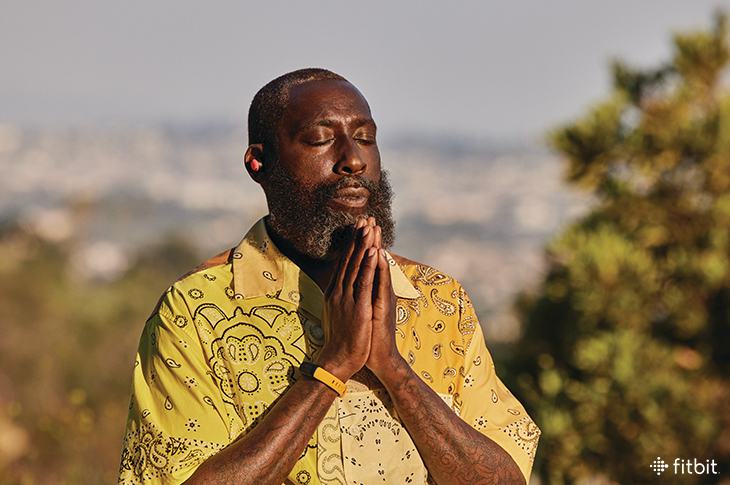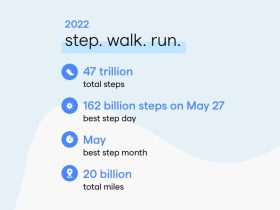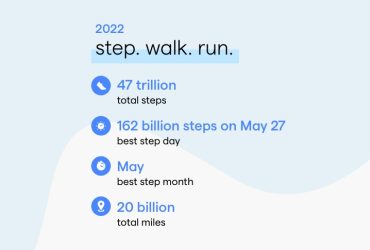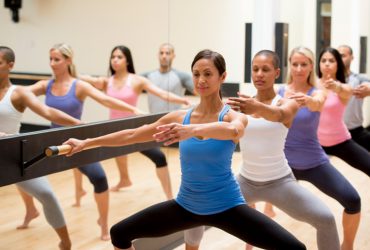While focusing on building muscle may seem to be the norm for strength training, varying movement from “the usual” and focusing on mobility, stability, and diversity can help men stay fit as they age.
Ready for some top tips to train for longevity? Let’s start with exercise.
Move more and sit less. Your best health outcomes come from how often you move, NOT the intensity of your sessions. A study of participants with an average age of 53.4 years found that increased breaks in sedentary time of at least one minute were beneficial for their overall health.
Take the stairs when you can. As a weight-bearing exercise, climbing stairs improves muscle strength, bone density, and joint flexibility. The motion also improves balance and is a lower impact exercise than running. Take the stairs at your workplace and wherever else you can, gradually increasing the number of flights you take.
Watch how you move. Do you use perfect technique when you squat or deadlift in the gym, but lift everything else with your back at home? Keep your spine safe by paying attention to how you lift things from the floor in your daily life.
Manage your mindset. Whether you’re just starting for the first time, a casual athlete, or a former All-American star —the first step is to understand that your body changes as you age. Be careful not to get caught up with what you think you “should” be able to do. Use where you are today as the first benchmark for improving your exercise habits.
Be brave enough to try something new. Some people cling to old habits or think they are too old to try new activities. This could keep you from discovering something you love—and keep your body from reaping the benefits of trying new movements! Try a bootcamp workout or pilates if you want to switch things up.
Make it social. Getting active is more than just lifting weights and solo gym time. Find other ways to get active and social! Salsa class, Zumba, martial arts like jiu-jitsu or Tai Chi, your local cycling club, and pickleball are all fun, low-impact ways to add a social element to your activity.
There are many benefits to joining a fitness group. A 25-year study in Mayo Clinic Proceedings found that social sports were linked to lower all-cause mortality compared to a sedentary lifestyle. Tennis extended life expectancy by 9.7 years, with badminton and soccer increasing by 6.2 years and 4.7 years, respectively. Additionally, individuals who are more socially engaged have a lower risk of cognitive decline.
Monitor your mobility. It’s easy to assume a connection between age, use, previous injury and knee or back pain. However, it’s good to check whether reduced mobility could be contributing, especially in the hips.
Try hip-opening stretches two to six times (or more!) per day to stay loose. Be gentle with yourself and your body as you work through these poses:
Kneeling hip flexor stretch. Take a kneeling lunge position with your right knee on the ground, with the left foot flat on the ground in front of you. Keep your upper body upright and your low back in line as you gently push your hips forward a few inches and contract your right glute muscles. You should feel this stretch most in the inside and front of your kneeling leg.Pigeon pose. Starting on your hands and knees, reach your left leg behind you while keeping your right knee on the ground. Bring your right foot forward and to the left, rotating your leg so your right hip gets lower to the ground and the sole of your right foot faces to the left. This position may be easier for you to get to by rotating your knee towards the ground from a deep lunge.Butterfly stretch: Sit on the ground with the soles of your feet touching in front of you. Let your knees lower themselves to the ground. (Over a few weeks or months, you might even start to feel comfortable sitting in this position!)Frog/horizontal squat stretch: Starting on your hands and knees, lift your knees to move them apart laterally until you feel a gentle stretch (think side split with bent legs). Lower your body to place your elbows on the ground, then move your hips backwards to intensify the stretch. Hold a deep squat for 30 seconds or more.
Protect your mobility. One way to protect your mobility: use the floor more. It’s easy to always sit in chairs, seats, couches, and beds, but sitting on the floor helps maintain your mobility. Try sitting on the floor while watching TV or getting closer and more personal while playing with pets or kids. You’ll use and strengthen your core as you go up and down from the floor.
Check your posture. “The missing piece in almost everyone’s workout is posture-based training,” says Danny Choi, an online personal trainer focused on longevity. “Think about the axles of a car—if they’re not aligned, and one side is higher than the other, the wheels will wear out super quickly.”
Danny’s top posture tip? Watch for rib flares, which are persistent bony protrusions of the lower ribs that do not lay back down during exhalation or when you put your arms overhead. You can spot them simply by looking in the mirror. These bony protrusions can occur on the left, right, or both sides of your rib cage. Rib flares are associated with poor rib positioning, weak abdominal muscles, inactive obliques, and excessive extension of the lumbar spine.
One exercise he uses to check and correct his clients’ postures: bridge with overhead reach. Lie on your back with your knees bent so your feet are flat on the floor. Reach both arms overhead at an angle that doesn’t arch your back arms at 45 degrees is an effective range. While tucking your ribcage down and drawing your belly button in towards your spine. Take four to six deep breaths, and do two to three sets once or twice per day to maintain your posture.
Consider working with a trainer or coach. A trainer can give you valuable guidance and accountability to keep you going in the right direction for your health. A qualified trainer can adjust your workout plan for your skill level and keep you safe while helping to monitor and improve your range of motion.
Your longevity and health rely on each other, so make sure you are taking care of both. By following these simple tips, you can improve your mobility and longevity and remain mindful of the state of your body.
The post Ways Men Can Train for Longevity appeared first on Fitbit Blog.













